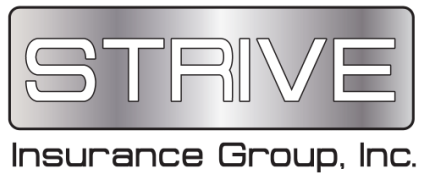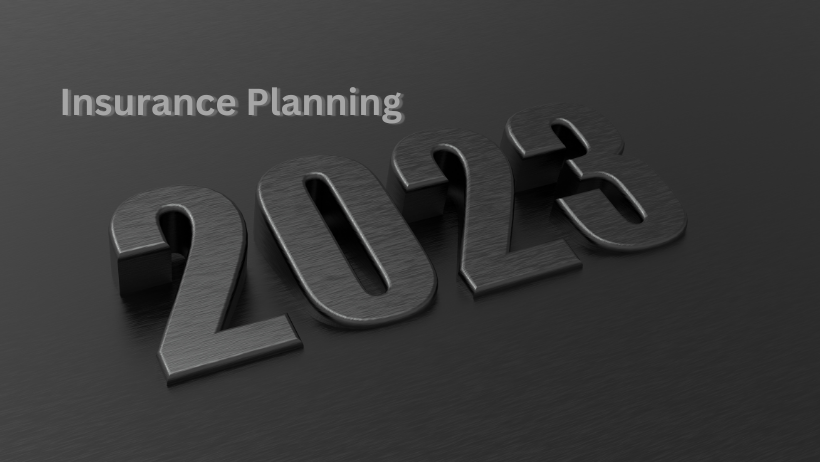|
In today's litigious society, where multimillion-dollar lawsuits can arise from simple accidents or unforeseen events, businesses must ensure they have adequate protection beyond standard liability policies. This is where commercial umbrella insurance steps in, offering an additional layer of security that can be crucial for a business’s survival. Here’s why every business should consider adding commercial umbrella insurance to their risk management strategy:
1. Extended Coverage Limits What It Offers: Commercial umbrella insurance provides additional coverage when the limits of your underlying liability policies (like general liability, auto liability, and employers' liability) are exhausted. For example, if a lawsuit costs $2 million to settle and your general liability covers only $1.5 million, your umbrella policy can cover the additional $500,000, thus protecting your business assets from being used to cover the shortfall. Why It’s Important: Businesses often face risks that can result in claims exceeding standard policy limits. Umbrella insurance acts as a safety net, ensuring that a business isn't crippled financially by a single incident. This is especially important in high-risk industries or those prone to large liability claims. 2. Broader Coverage What It Offers: Besides providing higher limits, commercial umbrella insurance sometimes covers claims that are not included in primary liability policies. This can include certain legal fees, contractual liabilities, and liabilities over business practices that may not be typically covered under standard policies. Why It’s Important: The broad nature of coverage under umbrella insurance means that businesses can be protected against unforeseen gaps in their primary insurance policies. This comprehensive coverage is vital for peace of mind and continuous business operations, particularly in dynamic environments where unexpected legal challenges can arise. 3. Cost-Effectiveness What It Offers: Commercial umbrella insurance is generally cost-effective, especially compared to the increase in limits it provides. Premiums are relatively low because the umbrella policy only kicks in after the primary insurance limits are reached, which makes it a less frequently used policy. Why It’s Important: For a relatively small additional cost, businesses can significantly increase their liability coverage. This makes commercial umbrella insurance an efficient way to boost total coverage without proportionately increasing insurance costs, providing substantial financial protection relative to the investment. 4. Reputation Protection What It Offers: By ensuring that claims can be settled fully and promptly, umbrella insurance helps in protecting a business’s reputation. Handling claims efficiently prevents negative publicity and maintains customer trust. Why It’s Important: A business’s reputation is one of its most valuable assets. In the event of a large claim, having the financial backing to resolve issues swiftly and fully can help avert potential reputation damage, which can be costly and difficult to recover from. 5. Peace of Mind What It Offers: With umbrella insurance, business owners can have peace of mind knowing they are protected against catastrophic losses that could potentially bankrupt their operations. Why It’s Important: Running a business involves managing daily risks. With the protection of an umbrella policy, business owners can focus more on growth and less on the potential for devastating financial implications from lawsuits. Commercial umbrella insurance is an essential component of a comprehensive business insurance strategy. It not only extends the limits of existing liability coverages but also ensures broader protection, making it an indispensable safeguard for businesses aiming to secure their future against the uncertainties of high-cost liabilities. In the vast and dynamic landscape of the Texas business environment, safeguarding your enterprise against unforeseen risks is paramount. Whether you're a small business owner or managing a larger corporation, the importance of having a knowledgeable insurance agent by your side cannot be overstated. In this blog post, we'll delve into the crucial reasons why partnering with an insurance agent is an essential aspect of securing and fortifying your business in the Lone Star State.
Tailored Coverage Solutions: The unique nature of each Texas business demands a customized insurance approach. A professional insurance agent takes the time to understand the specific risks associated with your industry, location, and operations. With this insight, they can tailor coverage solutions that address your business's distinct needs, ensuring comprehensive protection against potential threats. Expertise in Navigating Complex Policies: Insurance policies can be intricate and filled with industry-specific jargon. An insurance agent serves as your guide through this complexity, breaking down policy details, explaining coverage options, and helping you make informed decisions. Their expertise ensures that you choose policies that align with your business objectives while providing the necessary protection. Access to a Diverse Range of Policies: Insurance needs vary across industries, and having access to a diverse range of policies is crucial. Insurance agents often work with multiple carriers, giving you access to a broad spectrum of coverage options. This flexibility allows your agent to source the most competitive and comprehensive policies tailored to your business's unique requirements. Risk Management and Loss Prevention: Beyond merely providing insurance coverage, an insurance agent plays a proactive role in risk management and loss prevention. By conducting thorough risk assessments, they can identify potential vulnerabilities within your business and recommend strategies to mitigate those risks. This proactive approach can result in fewer claims, lower premiums, and a more resilient business in the face of challenges. Claims Advocacy and Assistance: When the unexpected occurs, navigating the claims process can be a daunting task. An insurance agent acts as your advocate, guiding you through the claims process, ensuring that you receive fair and timely compensation. Their expertise in claims management can alleviate the stress of dealing with insurers, allowing you to focus on the swift recovery and continuity of your business operations. In the ever-evolving and competitive landscape of Texas business, the role of an insurance agent is indispensable. From tailored coverage solutions and expert policy navigation to risk management and claims advocacy, their contributions go beyond providing a safety net – they actively fortify your business against potential challenges. By partnering with a trusted insurance agent, you empower your business to thrive and endure in the face of uncertainty, confident that you have a dedicated professional safeguarding your success. Commercial property insurance is a vital safeguard for businesses of all sizes. Whether you own a small retail store or a large industrial complex, protecting your assets from unforeseen events is essential. Commercial property insurance provides coverage for damages or losses to your business property, including buildings, inventory, equipment, and more. To ensure you have the right coverage, here are five keys to understanding and obtaining commercial property insurance:
Assess Your Property and Its Value Before you can secure the right insurance policy, you need to thoroughly assess your property and its value. This step involves taking an inventory of your business assets, such as buildings, machinery, office equipment, inventory, and even outdoor signs. Make a detailed list of everything you want to insure, including their estimated value. Having a clear understanding of the value of your property will help you determine the appropriate coverage limits. Consider working with a professional appraiser or your insurance provider to get an accurate assessment. Understand Coverage Types Commercial property insurance typically comes in two primary forms: named peril and open peril (also known as all-risk) coverage. Named peril policies provide coverage for specific perils, like fire, theft, or vandalism, which are explicitly mentioned in the policy. Open peril policies, on the other hand, cover a broader range of risks, except for those explicitly excluded. Most businesses opt for open peril policies as they provide broader protection, but they may come at a higher premium. Understanding the coverage type is crucial, as it determines what events are covered and which are not. Consider Additional Coverages In addition to basic property coverage, there are several additional coverages you should consider to enhance your protection. These may include: Business interruption insurance: This coverage can help replace lost income and cover expenses when your business operations are interrupted due to a covered peril. Equipment breakdown insurance: This covers the cost of repairing or replacing equipment and machinery that breakdown due to a sudden and accidental mechanical or electrical failure. Flood insurance: Standard property insurance typically doesn't cover damage caused by floods, so if your business is located in a flood-prone area, it's essential to purchase separate flood insurance. Earthquake insurance: Similar to flood insurance, this coverage is necessary if you're in an earthquake-prone region. Review your specific business needs and location to determine which additional coverages are necessary for your property insurance policy. Policy Deductibles and Premiums Commercial property insurance policies often come with deductibles and premiums. The deductible is the amount you agree to pay out of pocket before your insurance coverage kicks in. Higher deductibles can lower your premium costs, but it's essential to balance this with your ability to cover the deductible in case of a loss. Premiums are the ongoing payments you make for your insurance coverage. When determining your premium, insurance companies consider various factors, including the type of property, location, security measures, and the coverage limits. Be sure to get quotes from multiple insurers to find the best balance of coverage and cost for your specific needs. Review and Update Your Policy Regularly Once you have commercial property insurance in place, don't forget to regularly review and update your policy. As your business grows and changes, so do your insurance needs. Any significant renovations, property acquisitions, or changes in your business operations should be promptly reported to your insurance provider. Failing to keep your policy up to date can result in coverage gaps or insufficient protection. It's also wise to annually review your policy to ensure it still meets your business requirements and is priced competitively. Commercial property insurance is a vital component of your business risk management strategy. Understanding the keys to obtaining the right coverage—assessing your property and its value, understanding coverage types, considering additional coverages, managing deductibles and premiums, and reviewing and updating your policy—will help ensure your business is adequately protected in the event of unexpected disasters or accidents. Work closely with your insurance provider to customize a policy that meets your specific needs, and don't hesitate to seek professional guidance when necessary. Protecting your commercial property is an investment that can save your business from financial hardship in the long run. 8/10/2023 Our Top Ten Business RisksBusiness risks can vary depending on the industry, location, and specific circumstances of a company. However, there are some common business risks that many organizations face. We have always believed in education and putting you first. Some of these risks can be managed by insurance and other through risk management strategies, give us a call today.
If you're a business owner, you're probably well aware of the importance of insurance to protect your assets, employees, and customers. However, choosing the right insurance policies and finding the best deals can be a time-consuming and complex process. That's where partnering with an insurance broker can be advantageous. In this blog, we'll explore the benefits of working with an insurance agent or broker for your business. We offer special coverage options for products liability and coverage for the life sciences industry.
1. Expertise and Experience Insurance agents and brokers are trained professionals with extensive knowledge and experience in the insurance industry. They are well-versed in the various types of insurance policies and can provide expert advice on the coverage that best suits your business needs. With their expertise, they can help you make informed decisions and ensure that you are adequately covered. 2. Time-Saving Shopping for insurance can be a time-consuming process, especially if you're not familiar with the industry. By working with an insurance broker, you can save time and focus on running your business. Insurance brokers will do the research and shopping around for you, presenting you with options that meet your needs and budget. 3. Customized Insurance Solutions Every business is unique, and so are its insurance needs. An insurance broker will work with you to understand your specific requirements and tailor insurance policies to meet those needs. They will also provide you with options that you may not have considered before, ensuring that you have the best possible coverage. 4. Cost Savings Insurance brokers have relationships with various insurance providers and can negotiate better deals on your behalf. By leveraging their industry knowledge and expertise, brokers can help you find the most cost-effective insurance policies that provide the coverage you need. 5. Claims Assistance In the event of a claim, an insurance broker will be your advocate and guide you through the process. They will work with the insurance provider to ensure that the claim is handled efficiently and effectively. This support can be invaluable, especially during stressful times. 6. Ongoing Support Your insurance needs may change over time, and an insurance broker will be there to help you adapt. They will review your policies periodically and make recommendations to ensure that you are always adequately covered. They can also provide you with advice on risk management and loss prevention, helping you avoid potential claims in the future. Partnering with an insurance broker can provide your business with numerous benefits, including expertise and experience, time-saving, customized insurance solutions, cost savings, claims assistance, and ongoing support. By working with an insurance broker, you can ensure that your business is adequately protected, allowing you to focus on growing and running your business with confidence. Strive Insurance Group, Inc. (formerly Gordon Lund Insurance Agency, Inc) is an independent insurance agency representing many insurance companies. This means that we quote with many different insurance companies to obtain the best rate and coverage for your insurance. We do this at no additional fee or service charge to you. Our insurance agency's reputation for representing the best insurance companies, providing excellent customer service and competitive pricing to our clients has been earned and proven for over 30 years. We take great pride in finding you the best coverage and backing it up with prompt personal service. 3/22/2023 Construction Defect ClaimsConstruction Defect is a phrase contractors do not like to hear.
Construction defect claims can be defined as damages resulting form faulty work or workmanship. Court decisions and state regulations make managing the risk of construction defects more than just prevention. Construction Defect Insurance The CGL policy underwent a major revision in 1986. The changes sought to clarify and to simplify the "property damage" exclusions. The changes were not, however, intended to change the exclusions meaning or effect. Not every policy is created equal. Make sure your contractors insurance does not have defect exclusions. “Now, an ‘occurrence’ is typically defined under a CGL as “an accident, including continuous or repeated exposure to substantially the same general harmful conditions.” In other words, a threshold coverage question is whether the Homeowners’ lawsuit alleges property damage caused by an occurrence.” Property Casualty360.com Legal battles will continue over whether construction defect claims are covered by commercial general liability policies. This will cause increases in the cost of contractors insurance. Construction Defect Risk Management
Business Insurance Trends The business insurance world is changing at a fast pace. Technology is continually evolving and businesses must change or die. New technology also brings change in claims and litigation. Often lawsuits filed today are indicators of business liability claims tomorrow. Business Insurance Business or commercial insurance coverage is available for almost every conceivable risk your business might face. The cost and amount of coverage of policies vary among insurers. Also the type of business you are in also impacts cost and coverage. You should discuss your specific business risks and the types of insurance available for your business with us. Future Business Insurance Risks Intellectual Property This is one of the fastest growing areas of litigation. The average defense cost in 2013 was over $500,000. With more information being disrupted over the internet, claims are sure to increase. Intellectual property insurance coverage protects companies for copyright, trademark or patent infringement, and claims arising out of the company's operation. Products Liability Insurance Products liability insurance covers a wide range of potential claims related to the sale and distribution of products. These include any injuries or losses due to design defects, manufacturing defects, inadequate instructions or warnings, improper packaging or labeling, breach of warranty, and other similar issues. In addition to covering the associated legal costs, it can also provide coverage for damages awarded by a court in such cases. This type of insurance is critical for businesses that produce, distribute, or sell products as it helps protect them from financial losses if they are held liable for an injury caused by their product. Healthcare Professional Liability As we move well into healthcare reform, we are seeing increased litigation focused on medical providers of all kinds. In 2012, litigation against OB/GYN doctors accounted for over $3.5 billion in claims. Many states have enhanced medical malpractice laws designed to speed up and compensate injured patients. Cyber attacks Recent news that Russian cyber thieves stole billions of passwords should create heightened awareness about the risks and need for cyber insurance. The problem, Munich Re explains, stems from the fact that “most traditional property and liability policies provide no cover for cyber risks” although there still may be a duty to defend until such time as coverage is determined. Social Media Social media is becoming popular with many businesses, and this increases the liability risks. The combination of personal use and business use combined with privacy laws increases the risk to business of being sued by employees and other third parties. There is definite increased risk of defamation, libel and slander for firms who don’t outsource the service. Directors & Officers Liability Most business owners don’t believe they can or will be sued despite statistics that show otherwise. The latest number by Chubb Insurance Company shows that about 20% of firms have been sued for directors and officers negligence. Claims can be made by shareholders, regulators, family members, customers, vendors and competitors. What is liability insurance? It is the type of insurance that provides coverage for the purchaser if he or she is sued for losses or damages to another person. However, note that payment is NOT made to the insured person but to a third party that suffers loss or injury based on the insured person’s action or inaction. Furthermore, liability insurance does NOT cover contractual negligence on the part of the insured. In other words, if you do NOT meet your contractual obligations, you cannot expect your insurer to come to your aid. Lastly, an insured is NOT covered by this policy if it is proven that damages were caused deliberately. Type Of Liability Insurance Policies 1. Business Liability Every business runs the risk of causing losses or damages to a third party. This coverage protects your business from liability claims resulting from your premises and operations, your products and services, personal or advertising injury (libel suits are covered here), medical expenses or fire damage. 2. Employer Practices Liability If your business has employees then there is the need to have this type of liability coverage to protect your business. This policy covers your business for various claims by employees (past and current). It includes claims of wrongful termination, sexual harassment, discrimination, negligent evaluation, failure to employ or promote, breach of employment contract, wrongful discipline, mismanagement of employee benefit plans, deprivation of career opportunity and infliction of emotional distress. 3. Professional Liability This is also known as E&O (Errors and Omissions) insurance. If you are a professional who may be sued for negligence, errors or omissions in the discharge of your professional duties, then you need this policy type. This will cover you if your advice leads to financial loss to your client, a client is dissatisfied with your service and decides to sue for damages and other related issues. 4. Umbrella/Excess Liability This type of policy increases the amount of liability coverage for a policy holder. It is also called personal excess coverage. People buy it to ensure that lawyers do NOT go after their personal assets when the liability coverage amounts in their home and/or auto insurance policy is inadequate for compensation in a liability suit. There are other liability insurance policy types like general liability and cyber liability. Your auto insurance policy normally comes with liability components in the form of bodily injury liability, which takes care of people injured in an accident, and property damage liability, which pays for damages to someone else’s property by your vehicle. 5. Products Liability Insurance Products Liability Insurance is a type of insurance that provides protection for businesses when their products cause property damage, bodily injury, or death to customers. It helps cover the costs associated with defending and settling claims against your business due to any losses incurred because of a product you have made, sold, or distributed. This includes damages related to design defects in manufactured goods; improper labeling or packaging; inadequate warnings; and breach of warranty. Without this coverage, businesses would be completely exposed in such cases and face devastating financial losses and significant legal fees So Why Do You Need Liability Insurance? The answer is simple: We live in a litigious world. People are very quick to claim damages for any action or inaction that they believe impacts them negatively. You are liable if a dead branch falls off your tree and hits a guest on your property. You are liable if someone is bitten by your dog. The list goes on and on. And what happens if the liability amount of your regular policy is inadequate? Any smart lawyer can easily go after your assets in order to get full compensation for his or her client. This means that you need to get the right liability coverage (an umbrella insurance policy) if you have substantial assets and want to keep them safe. It is on record that 60% of employers are sued each year by their former employees. Add the fact that communities can easily sue a company for a product, service or activity that has “affected” their lives negatively. Liability insurance is a necessary part of any insurance policy. With the beginning of a new year, it is important to review your home and auto insurance policies to ensure you are getting the most out of them. To begin this process, here are some questions you should ask when reviewing your policies; “What is and is not covered with my policies?” “Do I need to add any new family members or vehicles to my policies?” “What are my deductible amounts?” “Am I taking advantage of all available discounts?” “Is my coverage adequate enough to cover a loss should I have one?”
The following information will help guide you through some of these key questions for getting the most out of your home and auto insurance. 1)Review Your Policy- Make Sure You Are Aware of What Is and Is Not Covered It is essential to review your home and auto insurance policies to make sure you are aware of exactly what is and is not covered. Different policies cover different things, so it is best to read the entire policy to understand what is included. Depending on where you live and the type of coverage that you have purchased, there may be certain geographical limitations or exclusions related to certain types of damage such as flooding or earthquakes. Additionally, many policies will also list out any items that are not covered under your policy such as high-value items like jewelry or expensive electronics. By understanding exactly what is and is not covered with a policy can help prevent any unpleasant surprises if something were to happen down the line. When reviewing your current home and auto insurance policies, it is also important to consider additional optional coverage that could be beneficial for you in 2023. This will be based on your changing needs or circumstances - especially when it comes to new vehicles added over the past year. Optional add-on coverage options can provide extra protection from specific risks not otherwise provided by standard coverage, like roadside assistance packages or rental car reimbursement, should an accident occur away from home. It is always worth considering these additional coverage options since they often come with minimal cost, but they can offer tremendous peace of mind knowing that all bases are covered should anything unfortunate arise during 2023! 2)Add Any New Family Members or Vehicles to Your Policy Adding any new family members or vehicles to your policy is a crucial step in getting the most out of your home and auto insurance. If you have purchased a new car, it is important to include it on your policy as soon as possible so that you can enjoy the full benefits of coverage right away. Typically, this involves providing details such as make and model information, VIN numbers, and registration data. These details will ensure a smoother process when adding a vehicle to an existing policy! For any newly added family members (spouse/children), you may need to update certain aspects of your policies, such as personal liability limits and increased medical payments should they be involved in an accident. It is also worth considering adding them onto the same auto insurance plan since doing so often results in discounted rates due to economies of scale associated with multi-car policies. 3)Check Your Deductibles To Make Sure They Are Still Appropriate When reviewing your home and auto insurance policies, it is important to check and make sure that the deductibles are still appropriate for your needs. Having a deductible that is too low can put you at risk of losing out on potential savings if you need to file a claim. However, having a deductible that is too high could leave you facing hefty costs in the event of an accident or damage. It is best to review the amount of deductible currently listed with each policy and compare it against any changes in your financial situation over the past year. If either has changed significantly, then it may be worth considering adjusting deductibles accordingly, so they better reflect current circumstances while also allowing for maximum savings when filing claims down the line. Ultimately taking advantage of all applicable deductions can help ensure adequate coverage while keeping costs manageable throughout 2023 and beyond. 4)Confirm That You Are Taking Advantage of All Available Discounts It is advisable to investigate available discounts as well when checking deductibles since these could help lower overall premiums further. It is important to make sure you are taking full advantage of all the discounts available when it comes to your home and auto insurance policies. Some of these may include discounts for having multiple policies with one insurer, being a part of certain organizations like alumni associations or professional societies, or even having certain safety features installed in your vehicle. Taking advantage of any applicable deductions can offer significant savings on premiums while still providing adequate coverage should something unfortunate arise during 2023! It is also worth confirming if there are additional discounts that could be applied towards specific coverages such as roadside assistance packages or rental car reimbursement should an accident occur away from home. Additionally, many insurers now offer preferred driver discount programs designed to reward safe driving habits with discounted rates, so even if you have been involved in a few accidents over the past year—this could still provide some relief when it comes time to renew your policy in 2023. Ultimately exploring all potential deductions and discounts before signing up for new policies each year can help ensure maximum savings while also protecting yourself and your loved ones against unforeseen risks throughout the year. 5)Review Your Coverage Limits To Ensure They Are Still Adequate It is important to review your coverage limits and ensure they are still adequate for your needs. This means confirming that the amount of liability protection you have is high enough, as well as any other coverages such as medical payments or rental car reimbursement should an accident occur away from home. It is also worth considering increasing these limits if possible since doing so can often result in lower premiums due to economies of scale associated with higher-value policies. Also, having adequate coverage offers more peace of mind knowing that greater financial protection is available against unforeseen risks during 2023. In conclusion, it is important to take the time to review your home and auto insurance policies. Doing so will ensure you are aware of what is and is not covered, that the deductibles are still appropriate, that you are taking advantage of all discounts you are eligible for, and that your coverage limits continue to be adequate. Taking this action now can help save money on necessary coverage. Strive Insurance Group, Inc. (formerly Gordon Lund Insurance Agency, Inc) is an independent insurance agency representing many insurance companies. This means that we quote with many different insurance companies to obtain the best rate and coverage for your insurance. We do this at no additional fee or service charge to you. Our insurance agency's reputation for representing the best insurance companies, providing excellent customer service and competitive pricing to our clients has been earned and proven for over 30 years. We take great pride in finding you the best coverage and backing it up with prompt personal service. 11/15/2022 Business Insurance MythsBusiness insurance is crucial in the current economic climate. In case we get sick or hurt, we have health insurance. We have auto insurance to protect us in case of a collision and allow us to drive legally. There is no exception for businesses. The proper types of company insurance coverage are necessary if you operate a business in order to safeguard it. Common misconceptions about company insurance are dispelled as follows:
Only Large Businesses Are Sued Even in our litigious culture, many people are aware that going after a big business in court is frequently a bad idea. They have the financial wherewithal to wait out a plaintiff, tying up the matter in court as their in-house attorney refuses to move. Forty percent of all small firms, according to the Small Business Administration (SBA), are thought to be involved in litigation every year. Therefore, it is highly possible that you will have faced legal action by the time you have been in operation for three years. Insurance Is Not Necessary For Small Businesses Simply said, this claim is untrue. In this litigious environment, any size of company can be sued. Every year, numerous small firms get into legal disputes. The size of your business property, the number of employees you have, or even your revenue are not factors in business insurance. It needs to be based on the risk exposure that your company faces. The correct insurance coverage can assist in protecting your business from catastrophe, regardless of the risk, which may include fire, theft, liability for injuries, or a lawsuit based on a service or product your firm delivered. My Home-Based Business Is Covered By Homeowners Insurance It's crucial to understand that your homes insurance won't offer enough protection for your home-based business if you're self-employed and operate from home. According to the Insurance Information Institute, the median homeowner’s policy only covers business equipment up to $2,500. (III). This might not be sufficient to cover all of your commercial property. Additionally, a homeowner’s policy won't offer liability or lost income coverage, which you could require. Your alternatives for home-based business insurance can include: BOP: This sort of insurance is intended for small to medium-sized businesses. If your home-based business has multiple locations, it is a wise decision. On a far larger scale than an in-home business policy, a typical BOP will cover business property and equipment, liabilities, lost income, and other expenses. The Cost of Business Insurance Is Expensive Although it is not free, business insurance is required to run a business. Cutting costs in a way that puts your company in danger is not a cost-effective strategy. Every day, several small businesses are sued for various reasons. Your company's size, location, and the kinds of services or goods you offer will all affect how much your business insurance will cost. Strive Insurance Group, Inc. (formerly Gordon Lund Insurance Agency, Inc) is an independent insurance agency representing many insurance companies. This means that we quote with many different insurance companies to obtain the best rate and coverage for your insurance. We do this at no additional fee or service charge to you. Our insurance agency's reputation for representing the best insurance companies, providing excellent customer service and competitive pricing to our clients has been earned and proven for over 30 years. We take great pride in finding you the best coverage and backing it up with prompt personal service. Call our team for a free review. |
Archives
June 2024
Categories
All
|











 RSS Feed
RSS Feed
4/9/2024
0 Comments